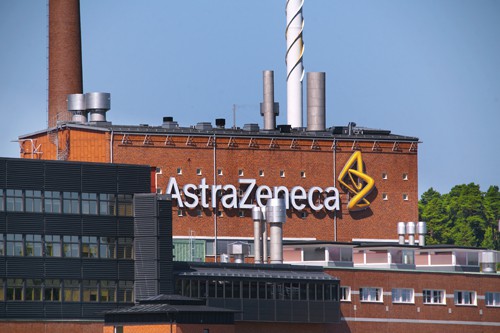
UK start-up Bicycle Therapeutics has attracted big pharma interest in its bicyclic peptide technology, signing a wide-ranging deal with AstraZeneca worth up to $1bn.
Bicyclic peptides have the targeting power of monoclonal antibodies but behave more like small molecules in their ability to penetrate tissues and be delivered at specific doses, as well as their ease of synthesis.
They are also less likely to cause immune reactions than antibody drugs and are soluble in water – meaning they can be used in a broad range of formulations.
Added to that, the peptides can be directed at a single target, coupled together to combine two functions or act like antibody-drug conjugates (ADCs), with a targeting element linked to a molecular cargo such as a cell-killing compound.
Cambridge-based Bicycle’s in-house programmes are targeted at cancer, but AZ’s initial interest is in the development of bicyclic peptides for respiratory, cardiovascular and metabolic diseases, including inhaled drug candidates.
The big pharma company is making an undisclosed upfront payment, a commitment to future R&D funding as well as development, regulatory and commercial milestone payments.
The $1bn figure will only be reached if all the planned projects reach the market. The cash injection follows a $32m fundraising by Bicycle in 2014 to advance the technology platform, which has grown out of research conducted by the MRC Laboratory of Molecular Biology in Cambridge by its founders – Sir Gregory Winter and Professor Christian Heinis.
The deal comes at a time when AZ is making big changes to its business, selling off mature products and R&D projects outside its core focus while licensing bolt-on projects in its favoured therapeutic areas – although of late more has been going out the door than in.
The company is trying to boost its product pipeline following the loss of several patent protections for blockbuster drugs and meet a revenue target of $45bn by 2023.
“Bicycle’s focus so far has been in oncology and bringing AZ’s expertise in respiratory, cardiovascular and metabolic disease to their platform substantially expands its potential,” said Kumar Srinivasan, vice president of scientific partnering and alliances at the big pharma firm.
Bicycle’s lead in-house candidate is BT1718, which is a bicyclic peptide targeting MTI-MMP, a regulator of cell migration in tissues – is due to start clinical trials in the coming months.




